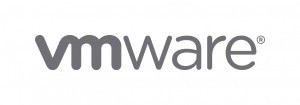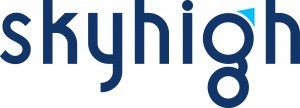Cloud Computing is a comparatively new phenomenon that is gaining importance in businesses and the tools designed for its security are also in their infancy. Many new companies have tried their luck by introducing cloud security options – some survived and some perished.
Here are a few cloud security start-ups (some are well-established players too) that you should know about:

Bitium’s approach tends to be influenced by the Bring Your Own Device (BYOD) trend. With the increasing number of devices, an individual employee may be using, the risk of corporate data being leaked increases exponentially. Bitium offers to provide a strong security solution that allows for easy usability too. The company’s analytics offering enables corporations to see what apps individuals are using increasingly and know which ones they can pre-empt security risks as well as save money by decommissioning unused apps.

CipherCloud makes the transition to the cloud easy and safe. Their approach is to build a platform that allows security features including malware detection, encryption, data loss prevention, tokenization, and auditing. Once data is encrypted locally on the clients’ devices, CipherCloud offers a gateway for it to be uploaded to cloud via SSE and stores the keys to the data locally. This relieves business of the security risks while moving to the cloud.

One of the oldest set ups operating in the cloud has a series of cloud management products, including vCloud and vRealize. VMware solutions help businesses to virtualize their security, enabling administration of the security infrastructure to use the same interface that is used for organization’s private cloud. Its flagship products VMware, vCloud Networking, and Security Edge secure the virtual data in a cost-effective way.

McAfee, an established name in the web-security, has branched out to providing cloud security. The company has a different approach to cloud security – they allow companies to develop their own security protocols, which are then applied to the cloud environment. The many advantages of this liberal approach are clarity, transparency, compliance, as well as consistency. Organizations can choose the elements that they need while ensuring their data is safe at the cost and scalability benefits of the public cloud.

The IT giant, IBM, with its experienced gesture, has proven its expertise in the cloud security tools. IBM’s offerings include application and data security, infrastructure protection, identity and access management, and security intelligence. Its dynamic cloud security is designed to work together with organizations’ existing security processes to create an integrated system including regular IT infrastructure as well as private, public and hybrid cloud setups.

Skyhigh enables provision for organizations’ proper maintenance and security. The Skyhigh Secure reports a risk assessment for relevant services based on 30 different fields across a range of categories, which enables businesses to identify potential vulnerabilities. Based on this, the Skyhigh Secure provides capabilities for control and improved security that includes application auditing, encryption, data loss prevention, and cloud-to-cloud access controls.
The Skyhigh products are specifically targeted at particular cloud providers including Google Drive, Office 365, Box and Dropbox as businesses and individuals majorly use these as standard, assuming that they are secure.
Cloud security is an important issue and with many companies diving in to provide incomparable security solutions, it is difficult to make a choice. For a clarity on which cloud security service will work best for you, please contact Harry Bhatia 2165035150 X 206.
Net Activity Inc. is a leading provider of proven cloud computing solutions. Completely dedicated to its services and customer satisfaction, the team popularly addresses its customers’ diverse cloud requirements along with offering a robust environment. For more details, visit our website: http://www.netactivity.us/services/it-managed-services.




